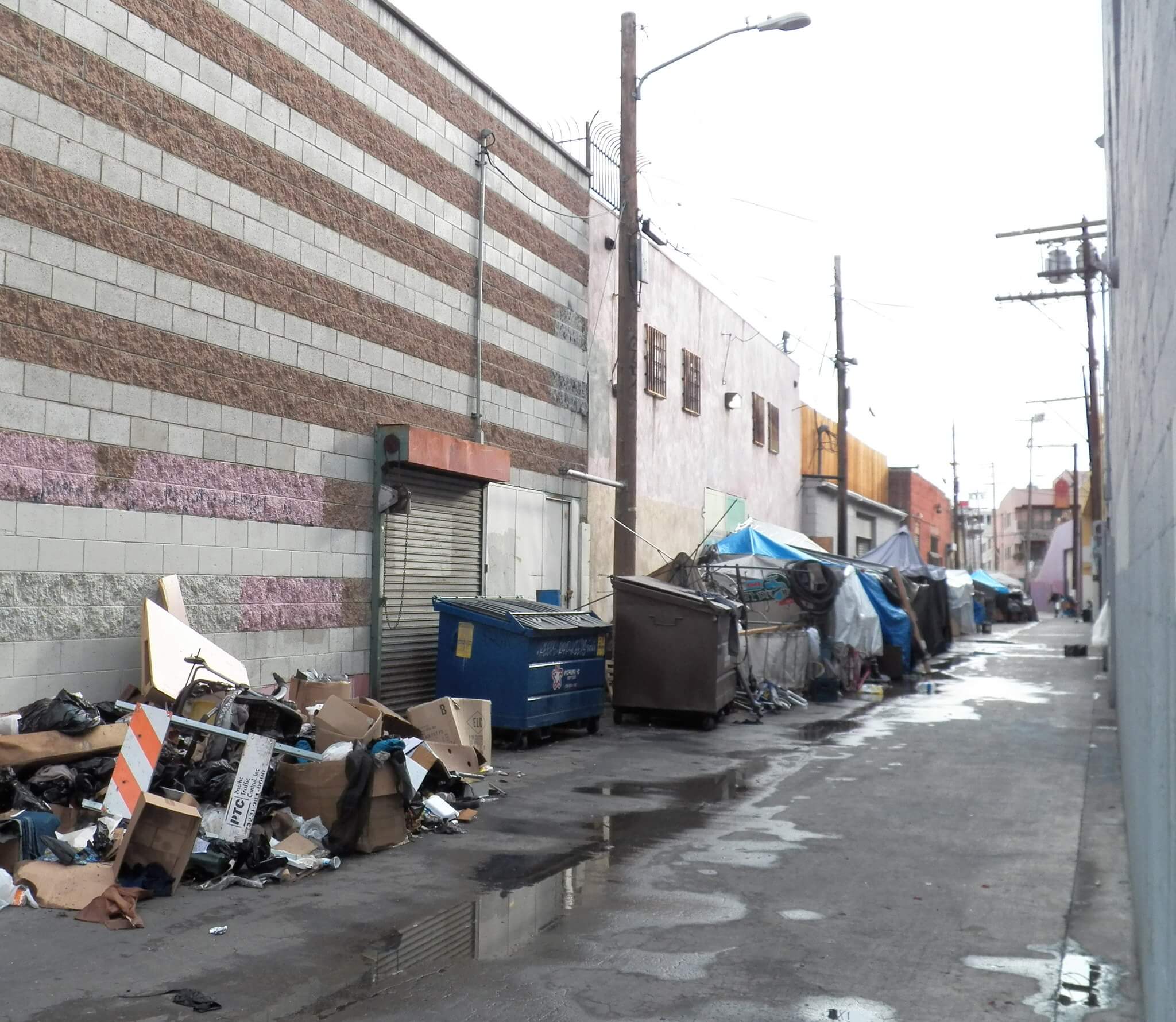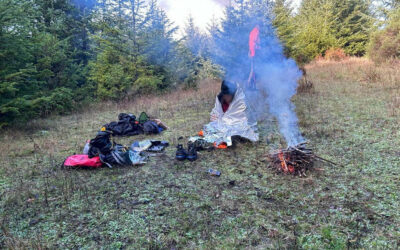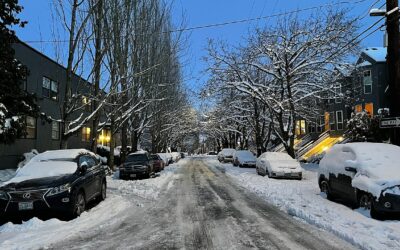Portland was once defined by its roses and hiking trails. There were waterfalls, quiet sanctuaries, and paths through the temperate rainforest. Residents could bask in nature, or spend their time strolling through downtown streets, browsing, shopping, and exploring tiny shops. It wasn't perfect. The city had its fair share of eccentricities, but that was part of the allure. Portland was weird, not unsafe.
Now those streets are clogged with homeless encampments and shopping carts, littered with glass pipes and needles. The smell of fermented moss has been replaced with urine and meth vapor. Unhoused addicts move from one makeshift shelter to the next, selling and buying drugs, stuck in various stages of stimulant-induced psychoses.
It used to be that people were too shy to go peeking through shop windows. Now those windows are boarded up, shuttered against a never-ending barrage of political unrest, and heroin addicts shoot up in the open, emboldened by laws that have decriminalized hard drugs.
Residents are scared. They want to take back their streets, but they don't know how. The city's government has made promise after promise. They've passed bills allowing them to collect the funds they needed to build shelters and housing, but those funds festered and built up, perpetually stuck in limbo while instances of embezzlement haunted the community. In truth, the city had what it needed to house the homeless. They just weren't doing it. They claimed that it was impossible and instead focused on affordable housing, gentrified, overpriced units with admission restrictions, meant to look good on camera, not provide a solution.

Image courtesy of UrbexNW / Flickr
All the while, the encampments were getting worse, making it difficult for the city's disabled to complete daily tasks, spurring an epic lawsuit. People who didn't have the physical capacity to dodge addicts or go around tents had no other choice, and it presented a clear violation of the Americans with Disabilities Act.
The city kept dragging its feet, announcing one half-hearted solution after the other, always falling short of the sparse numbers needed to house Portland's destitute. It's not an impossible goal. Surveys put the population somewhere around 3000 on a bad day, and the city already had nearly 1,402 shelter beds available, almost enough for half. All they needed was a little bit more space--something many cities already have. But they preferred ribbon cutting to real solutions, claiming that the hundreds of millions they already had at their disposal weren't enough.
The numbers didn't add up. In the wake of their false promises, poorly managed budget, and overambitious projects, residents began speaking out, forcing Mayor Ted Wheeler to come up with an immediate solution. His idea was to set off a demented game of musical chairs. When one encampment sprouted up, the police would come and evict them, knowing full well the homeless had nowhere to go.
They'd leave and then build their encampment in the first place they could find. They had their favorite spots, so one area would be empty for a few days, and the same people would move there again, only to be evicted again. It became a pattern, one that everyone involved predicted.
Still, the city preferred bandaids to real solutions. They wanted people to feel like things were getting taken care of, but they had no intention of actually fixing the problem, and they still don't.
On November 4, Portland approved a plan to ban homeless encampments, build 20,000 units of affordable housing, and create six city-approved encampments capped at 250 people apiece. But the plan did not identify funding or land.
Another False Promise
The city's more fortunate residents have been clear. They want the encampments gone. They want their streets back, and they plan on speaking out to make it happen. This is why Ted Wheeler pushed a camping ban in the city, and it sounds great. But it's incredibly naive. People don't just vanish into thin air because somebody told them they have to find somewhere else to sleep. Instead, they'll stay up, do drugs, and commit crimes. This is not the road least traveled. The streets get more dangerous when people feel their way of life is criminalized.
They can't effectively enforce a camping ban--especially not in Portland, where tree cover and brush are easily found. People will slip into cracks, move into the forest, and violate property lines, taking any measure they deem necessary to get the rest they need.
The encampments that have been proposed to solve this problem aren't an option. According to OPB, three encampments of 150 people would cost 6.8 million annually, and that's about half of what is being proposed. They don't even have the permission of the civic leaders necessary to enact the plan. No funding has been permitted, and it's doubtful that it will be. The city couldn't even agree on a number that would accommodate Portland's homeless. They were just throwing out amounts until they found something that worked. If the encampments are built, and the problem gets worse--which it will--hundreds will still be left out in the cold with nowhere to legally sleep.
We also have to see things from the point of view of those affected by this--as hard as that might be. The homeless aren't even comfortable entering homeless shelters. They're not safe. They're unhygienic, and there's a real threat of robbery. Phones, laptops, and other personal belonging are either confiscated by or stolen by thugs. LGBTQ+ members of the community have spoken out against housing discrimination and the threat of hate crimes, and it's not unbelievable. It's something they have faced for decades.
Most people are going to take their chances and stick to the streets rather than move into the encampments, and they would be right to do so. If they were forced into an enclosed space with 250 other mentally ill addicts, things would happen. People would trade drugs. They'd black out on liquor, attack one another, go wild, hallucinate, and act on paranoid delusions. They'd rob one another to get the resources they needed to get high. There's a reason people on the streets stick to themselves. These camps are never pretty. Anyone who agrees to go there will be putting themselves at risk.
The encampments aren't permanent shelters, either. They're supposed to be a part of a non-existent path to becoming a tenant, backed up by affordable housing. But those affordable housing units have zero chance of being built. They would cost roughly 9.8 billion dollars, and the city doesn't have anywhere near that much available. At best, Ted Wheeler hopes that this will start the conversation they need to begin addressing the problem, but it's doubtful that anyone involved believes that this will come of anything.













